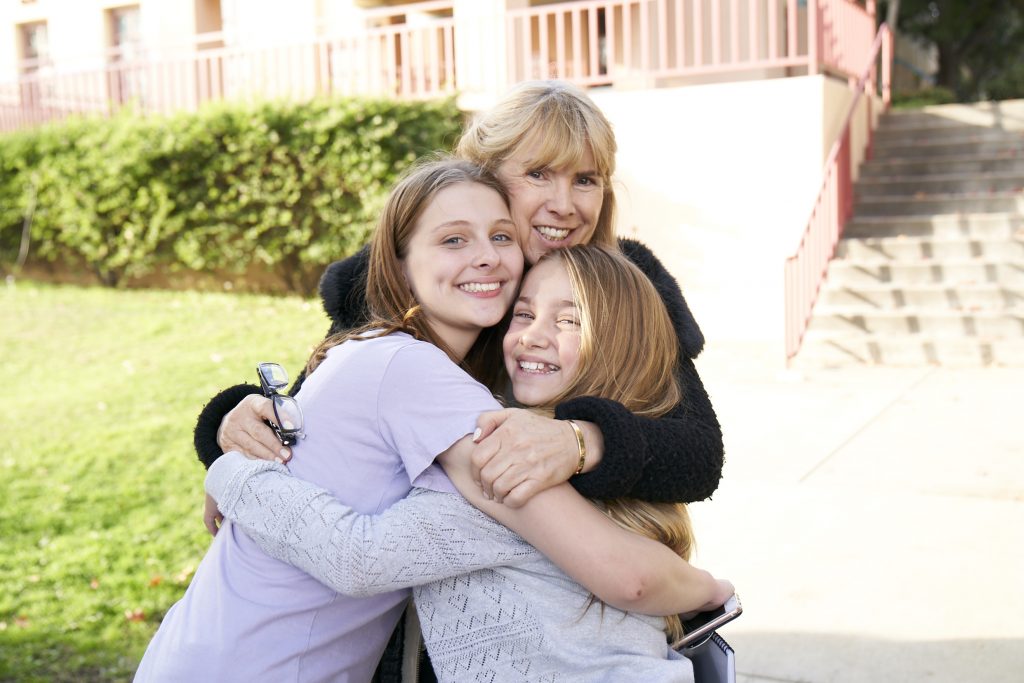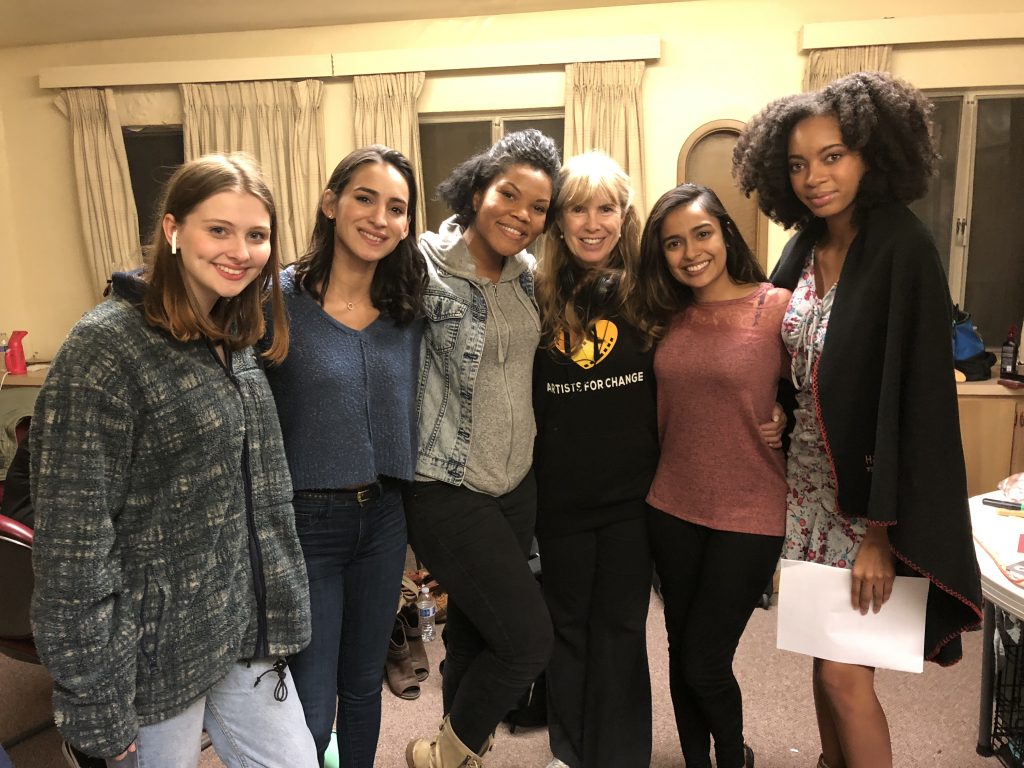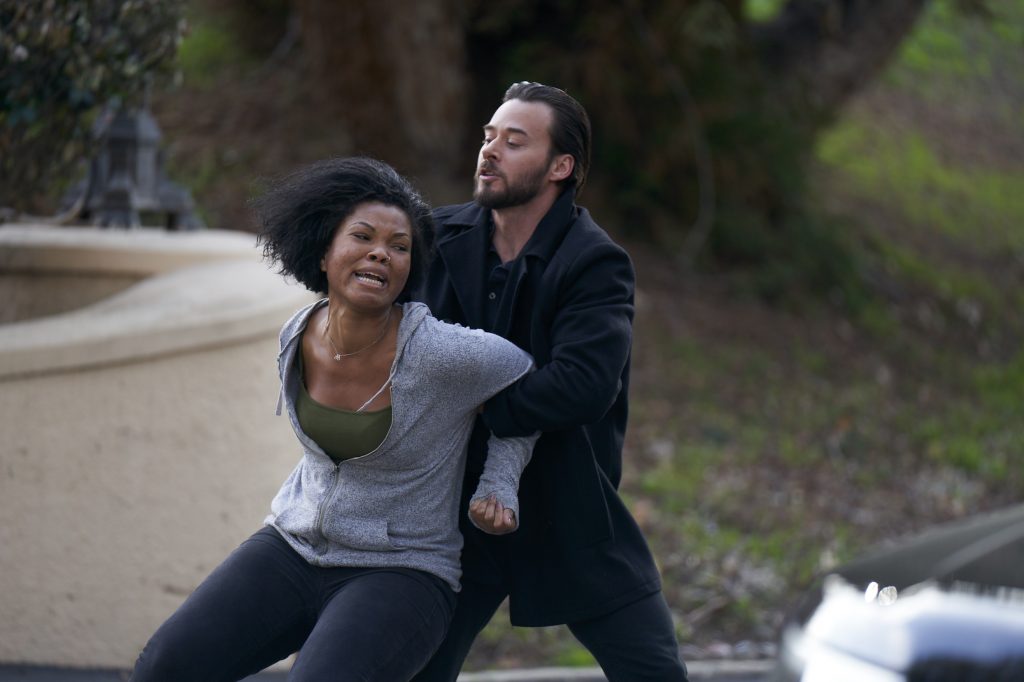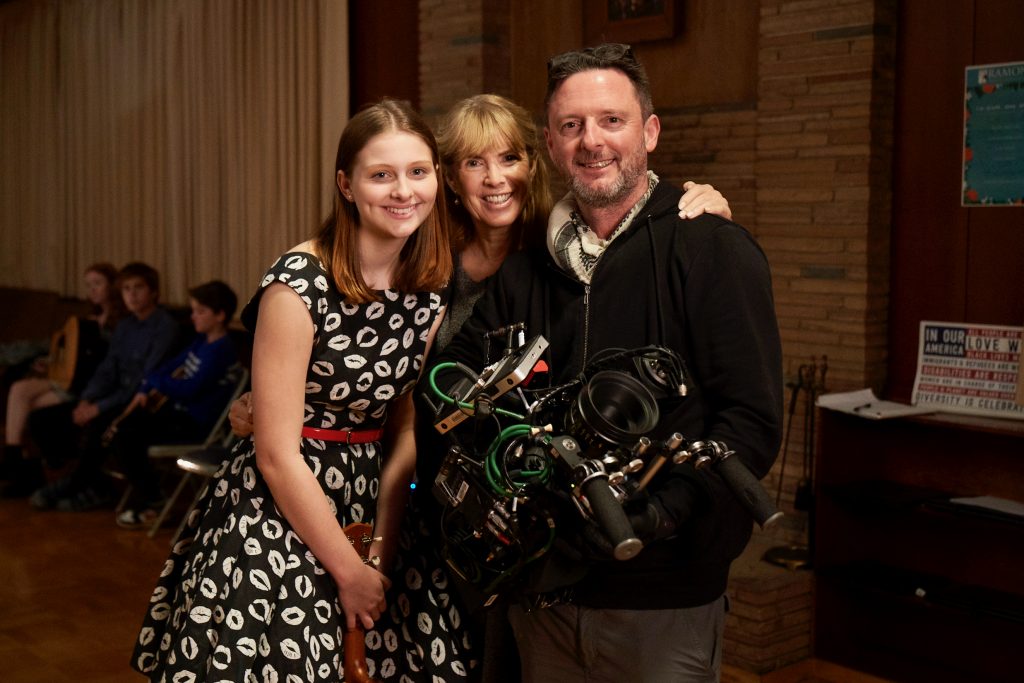Julia Verdin, started her career as an actress and soon moved into producing, writing and directing. As a filmmaker she has 36 film credits to her name and is currently devoted to creating projects that make a social impact. If that weren’t enough, she is also the author of the popular book, “Success in Film,” a guide to making an indie film and has most recently founded a non-profit. We caught up with Julia recently to ask about her career.
Hi, Julia. Tell us about Artists For Change. What inspired you to start this organization.
I felt there was a need for more collaboration between filmmakers and no profits. Film is such a powerful way to emotionally resonate with people. Look at the way the film “Blood Diamond” for example changed how people brought diamonds and also a lot of diamond manufactures changed their policies as a result too. There are so many issues that need awareness shed on them right now with all going on in the world. I also think films can be a very powerful tool that nonprofits can use to illustrate issues that they are dealing with or showcase the type of work they are doing both for educational and fundraising purposes. As well as making films, we also hold educational events and to educate and encourage artists to use their voices for good and make social impact content. As artists whether we be in music, art, film or any other form, we all have powerful voices and more than ever now it’s important to use them wisely.

Why did you choose to make your first film about child trafficking?
After hearing stories from teenagers about the horrific abuse they had been subjected to, it became something I could not look away from. I hate abuse to Kids and I really wanted to do something more to help protect youth than just donating to organizations. I am lucky enough to have skill in telling stories and know-how to make films. I am a great believer in the power of film to raise awareness and instigate change. Education leads to prevention. I hope that Angie: Lost Girls, my film about child trafficking will help to raise awareness and encourage people to keep their eyes open and if they see something, report it.
What do you hope people will learn from seeing Angie: Lost Girls and why is it important?
Trafficking has now become the second largest criminal activity in America and is a billion dollar business. It’s also a huge problem globally. The younger the child, the more money they make. If a child or teenager is trafficked and lucky enough to be rescued, it can take years to recover from that trauma. The more that can be done in educating families and teenagers, the more chance we have of keeping them safe. Education leads to prevention. If a child or a parent or someone working with teenagers can recognize the signs of someone being groomed by a trafficker – and reports it, that person could be saved. When people see a film like this, there is a good chance that when they see something that reminds them of what they saw that they will take action and report it.

Signs to look out for include – possession of expensive items that they could not afford, secretive behavior, evidence of a new relationship with someone outside known group of friends, missing school, evidence of controlling or dominating relationships, any visible bruising, suspicious tattoos or branding. Parents and those working with youth should keep their eyes open for these signs. Predators are also approaching our youth online so monitoring internet activity for any strange or inappropriate messages can be a good idea. It’s good for people to be aware of the telephone hotlines (1-888-539-2373 or 1-888-373-7888) to call if they suspect human trafficking activity.
I have found that a large number of people think that trafficking is something that happens far away, in other countries, and so when they see the films I’ve made they are surprised to find it is happening here in the US. We have to wake people up to the fact that it is happening all across America on our very doorsteps and we need to get a really active education program going on this. There are a number of groups doing good work out there but they need more support in terms of funding and volunteers. We also need to come together as communities and keep an eye out for foster youth and youth whose parents are struggling and not able to be present for them. They are particularly vulnerable to being trafficked.
I certainly don’t have all the solutions but my hope is that my film will be used to raise awareness and get more visibility to this problem. When large numbers of people come together and put their minds to finding solutions change can happen. A narrative film can be a powerful way to engage and get people interested in an issue as a call to action. I hope that this film can be a cog in the wheel to doing that.

Do you think your acting background helped you as a director?
Yes, very much so. I love actors and I remember only to well how vulnerable and exposed I used to feel on sets so I make a point of making my actors feel safe and let them know that they hit all the needed beats after each take. If an adjustment is needed, I always use action verbs or will give them a reminder of where their character has just come from prior to the scene to help them get to the needed emotional place. I like to spend time with each actor before shooting to talk through the character beats and the emotional arc of the character. In a film like this one where the actors have to go to dark places, it is also important to help them to come out of that place when the scene is finished.
How are you handling the current pandemic situation?
It was challenging initially to know what to do with our film, whether to wait and get it into theatres or just get it out. We decided to do a drive in premiere and then just get it out.
Do you think trafficking still goes on during the pandemic?
Yes, I do. Trafficking is going on during the pandemic and the number of missing children are going up. A lot of youth are bored, fed up with being stuck inside, arguing with parents and that makes them vulnerable and easy targets for traffickers.

How are you dealing with the pandemic yourself?
For me personally when I am not busy with non -profit work, I do a lot of yoga and hikes. It’s given me time to read and write. I do miss seeing friends. I believe in always making the best of any situation and the good thing is I have got a lot of the things I had wanted to do but not had time to do before done. I think it’s important to eat healthily, get enough sleep and do all you can to look after your immune system. I find it better to not watch the news or let myself get dragged into fear based thinking about “what if’s.” Stress is really bad for one’s health so I try to stay creative, stay positive and have faith in a good future and unity for our world.
What’s next for you?
I will be continuing to get this film as visible as possible, keep organizing educational screenings and building relationships with anti trafficking groups. The more we all come together on this issue, the better chance we have of change happening. I have got involved with the long beach trafficking task force who are an amazing group, through them we have organized a screening and Q+A with the Long beach unified school district of the short film Lost Girls that I directed also about child trafficking. There will be a Q+A after with a detective, a survivor and an NGO. I hope to do many more of these type of events with both films as that is why I made them and founded the non profit Artists for Change. I believe that education leads to prevention and as I mentioned earlier – film can be a really helpful tool to engage people and get their attention.
On the social impact front, I have another film about the trauma bond that develops between traffickers and their victims, and am also developing a project about the homeless crisis. Through my production company I also have a fun teen comedy that I am working on as well as some TV series in development. Sometimes It’s good to make content that can just give people pleasure and make them laugh too. Laughter is important at the moment and I always try to remember to smile every morning on waking as just that simple action can help set the tone for the day.
ANGIE: LOST GIRLS can be watched on:
Amazon https://www.amazon.com/Angie-Lost-Girls-Jane-Widdop/dp/B08PDJ7CX3
iTunes https://itunes.apple.com/us/movie/angie-lost-girls/id1542171467
Vudu https://www.vudu.com/content/movies/details/Angie-Lost-Girls/1521431
Xbox https://www.microsoft.com/en-us/p/angie-lost-girls/8d6kgwxn77wr?activetab=pivot%3aoverviewtab
Google Play https://play.google.com/store/movies/details/Angie_Lost_Girls?id=RrUi7if7LZg.P&hl=en_US&gl=US
YouTube Movies https://www.youtube.com/watch?v=ytLOWLorv5s&ab_channel=YouTubeMovies
PlayStation (available via PS Video app and console)
FandangoNOW https://www.fandangonow.com/details/movie/angie-lost-girls-2020/MMV3E8CB5CDD82D4CBF7940911E859356C38
The DVD is available via Amazon.com, Bestbuy.com, Walmart.com, and Barnesandnoble.com.




